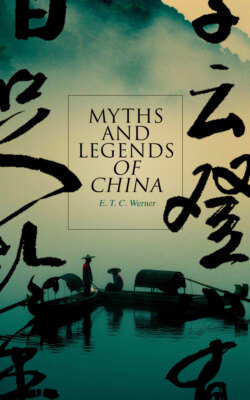Читать книгу Myths and Legends of China - E. T. C. Werner - Страница 28
На сайте Литреса книга снята с продажи.
Laws of Intercourse
ОглавлениеThroughout the whole course of their existence as a social aggregate the Chinese have pushed ceremonial observances to an extreme limit. "Ceremonies," says the Li chi, the great classic of ceremonial usages, "are the greatest of all things by which men live." Ranks were distinguished by different headdresses, garments, badges, weapons, writing-tablets, number of attendants, carriages, horses, height of walls, etc. Daily as well as official life was regulated by minute observances. There were written codes embracing almost every attitude and act of inferiors toward superiors, of superiors toward inferiors, and of equals toward equals. Visits, forms of address, and giving of presents had each their set of formulae, known and observed by every one as strictly and regularly as each child in China learned by heart and repeated aloud the three-word sentences of the elementary Trimetrical Classic. But while the school text-book was extremely simple, ceremonial observances were extremely elaborate. A Chinese was in this respect as much a slave to the living as in his funeral rites he was a slave to the dead. Only now, in the rush of 'modern progress,' is the doffing of the hat taking the place of the 'kowtow' (k'o-t'ou).
It is in this matter of ceremonial observances that the East and the West have misunderstood each other perhaps more than in all others. Where rules of etiquette are not only different, but are diametrically opposed, there is every opportunity for misunderstanding, if not estrangement. The points at issue in such questions as 'kowtowing' to the emperor and the worshipping of ancestors are generally known, but the Westerner, as a rule, is ignorant of the fact that if he wishes to conform to Chinese etiquette when in China (instead of to those Western customs which are in many cases unfortunately taking their place) he should not, for instance, take off his hat when entering a house or a temple, should not shake hands with his host, nor, if he wishes to express approval, should he clap his hands. Clapping of hands in China (i.e. non-Europeanized China) is used to drive away the sha ch'i, or deathly influence of evil spirits, and to clap the hands at the close of the remarks of a Chinese host (as I have seen prominent, well-meaning, but ill-guided men of the West do) is equivalent to disapproval, if not insult. Had our diplomatists been sociologists instead of only commercial agents, more than one war might have been avoided.
